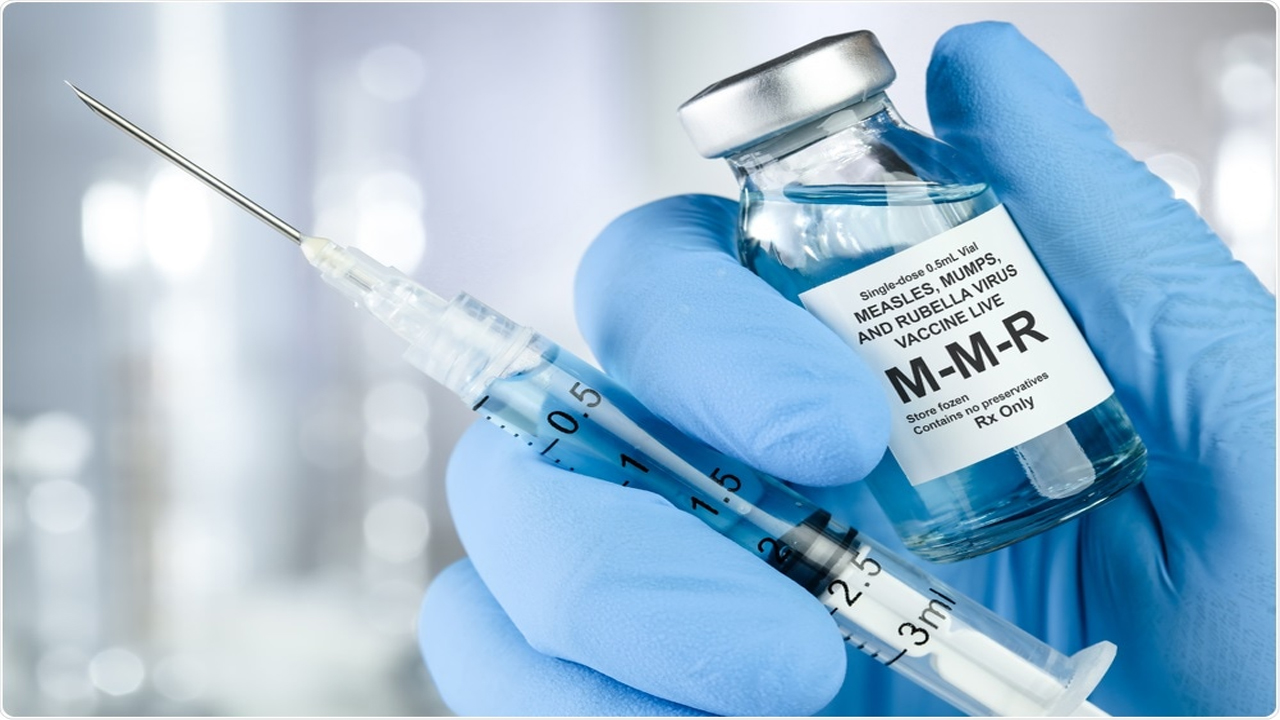In "Analysis of Measles-Mumps-Rubella (MMR) Titers of Recovered COVID-19 Patients" researchers provide further proof to the theory that the measles-mumps-rubella (MMR) vaccine provides protection against COVID-19. Researchers found that mumps IgG titers are inversely correlated with severity in recovered COVID-19 patients previously vaccinated with MMR II.
"This is the first immunological study to evaluate the relationship between the MMR II vaccine and COVID-19," said coauthor David J. Hurley, PhD, Professor and Molecular Microbiologist, the University of Georgia. "The MMR II vaccine is considered a safe vaccine with very few side effects. If it has the ultimate benefit of preventing infection from COVID-19, preventing the spread of COVID-19, reducing the severity of it, or a combination of any or all of those, it is a very high reward low risk ratio intervention."
"We found a statistically significant inverse correlation between mumps titer levels and COVID-19 severity in people under age 42 who have had MMR II vaccinations," said lead study author Jeffrey E. Gold. "This adds to other associations demonstrating that the MMR vaccine may be protective against COVID-19. It also may explain why children have a much lower COVID-19 case rate than adults, as well as a much lower death rate. The majority of children get their first MMR vaccination around 12 to 15 months of age and a second one from 4 to 6 years of age."
The researchers found a significant inverse correlation (rs = -0.71, P < 0.001) between mumps titers and COVID-19 severity within the group previously vaccinated with the MMR II vaccine by Merck. Mumps titers of 134 to 300 AU/ml (n=8) were only found in those who were functionally immune or asymptomatic. All with mild COVID-19 symptoms had mumps titers below 134 AU/ml (n=17). All with moderate symptoms had mumps titers below 75 AU/ml (n=11). All who had been hospitalized and required oxygen had mumps titers below 32 AU/ml (n=5). Titers were measured by Quest Diagnostics.

 A study of measles-mumps-rubella titers and SARS-CoV-2 infection severity was published in mBio, the open-access journal of the American Society for Microbiology
A study of measles-mumps-rubella titers and SARS-CoV-2 infection severity was published in mBio, the open-access journal of the American Society for Microbiology






.jpeg)
.jpeg)

.jpeg)
.jpeg)
.jpeg)
.jpeg)
.jpeg)
.jpeg)






.jpeg)

.jpeg)
.jpeg)







.jpg)

